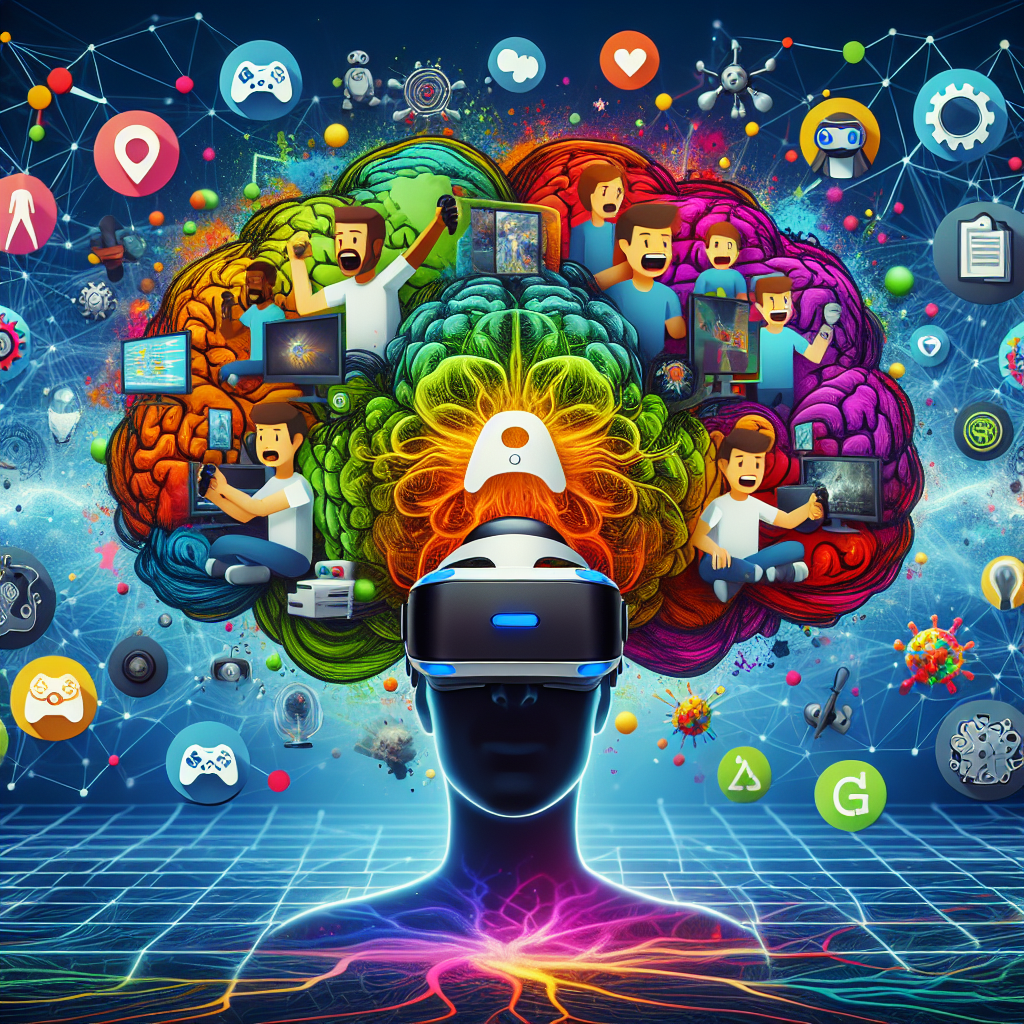[ad_1]
Introduction
As technology evolves, so do the ways we engage with games. Virtual Reality (VR) gaming has emerged as a dominant force, offering players immersive experiences that elicit intense emotional responses. Understanding the psychology behind this engagement can enhance game design and player satisfaction.
The Nature of Play
Definitions and Theories
- Play: A voluntary, intrinsically motivated activity that is usually pleasurable.
- Flow Theory: Proposed by Mihaly Csikszentmihalyi, this theory describes a state of deep immersion where players lose track of time.
- Game Design Elements: Including challenges, feedback systems, and narrative elements that drive engagement.
Emotional Engagement in VR
Mechanisms of Engagement
- Immersive Environments: VR allows players to step into another world, suspend disbelief, and connect emotionally with characters.
- Enhanced Interaction: Direct interactions increase emotional responses.
- Storytelling: Engaging narratives foster empathy and emotional investment.
Data Insights
Recent studies have illustrated the emotional impact of VR gaming:
| Study | Findings | Impact on Players |
|---|---|---|
| Smith et al. (2022) | Increased emotional responses in horror VR | Higher player retention and engagement |
| Johnson (2021) | Empathy scores increased with narrative-driven games | Improved emotional understanding |
Challenges in Emotional Engagement
Potential Drawbacks
While VR gaming can evoke strong emotions, there are challenges:
- Overstimulation: Excessive sensory input can lead to discomfort or disengagement.
- Temporary Experiences: Emotional highs in VR may not translate to real-world emotional states.
- Exclusion of Non-gamers: Complex VR games can discourage non-gamers from participating.
Future of Emotional Engagement in VR Gaming
Developers are exploring ways to enhance emotional experiences:
- Adaptive narratives that change based on player choices.
- Integration of biometric feedback to tailor experiences.
Conclusion
VR gaming is reshaping how players connect emotionally with stories and characters. By understanding the psychological aspects of play, game designers can create more engaging and impactful experiences. The future holds exciting possibilities as technology and psychology continue to intersect.
Frequently Asked Questions (FAQ)
1. What is the primary benefit of VR gaming?
The primary benefit of VR gaming is the immersive experience it offers, which enhances emotional engagement and empathy towards characters and narratives.
2. How does emotional engagement affect gameplay?
Emotional engagement can increase motivation, enhance immersion, and lead to more memorable gaming experiences, impacting player retention positively.
3. Are there any health risks associated with VR gaming?
Health risks may include motion sickness due to sensory overload. It’s important to take breaks and ensure a comfortable setup.
[ad_2]
